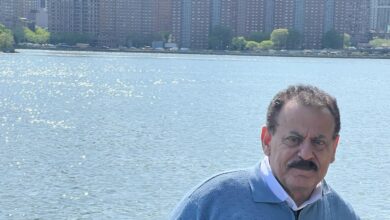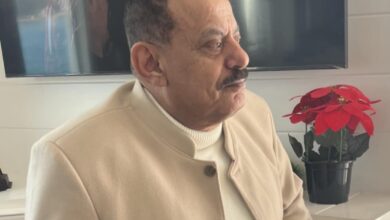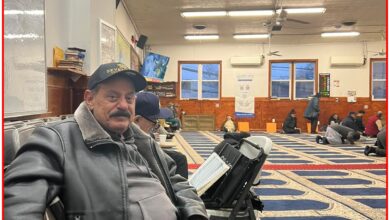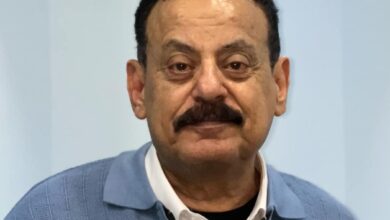Between My Fear and My Sense of Injustice
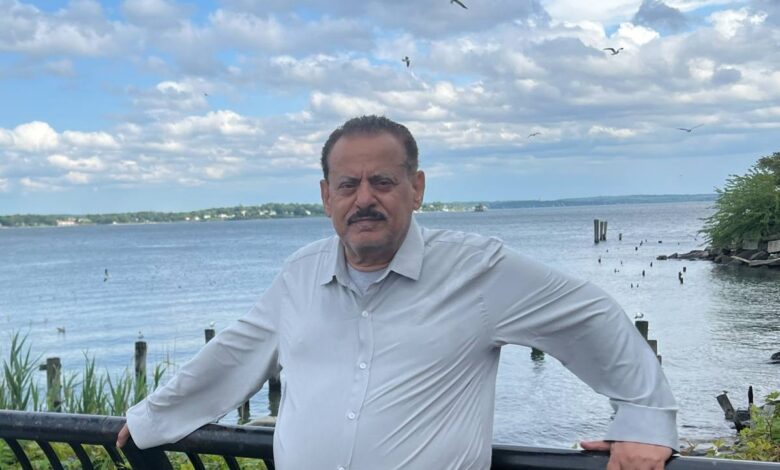
Yemeni mp
Ahmed Saif Hashed
In one of my meetings with voters during my electoral campaign for the parliamentary seat in 2003, I was speaking to them when I suddenly stopped for more than five seconds, and a heavy silence enveloped the room.
I felt a sense of inarticulateness as the thought slipped away, and my memory failed to assist me in that moment. A deep wound struck me; I sensed a psychological barrier residing within me—a significant dysfunction in my nervous system that could not be concealed or hidden. There was a flaw in my tongue and memory, an overwhelming feeling of inadequacy, accompanied by a troubling question filled with anger and resentment: How could a Creator, who was not created, exist—He who embodies perfection itself? The answer echoed back: “God has affairs in His creation.”
I was talking to myself before I reached the parliament: How could I speak in a grand hall, before three hundred deputies and four cameras surrounding me, capturing my details from every angle, perhaps for millions to see? How could I confront all this when I am the shy one who had long suppressed my love due to my immense shyness, failing to express my feelings for three years to the girl I adored in a silence so profound and intense, without her ever knowing I was burning and dying in love for her?
* * *
At the beginning of my tenure in parliament, due to my shyness and fear, I would ask myself: Will I be like the “silent Newton” of parliament, who was said to have said nothing during his entire term except for requesting once to close a window through which cold air was seeping? Or will I be like that astronomer who, invited by the king to a celebration in his palace, held back his urine out of embarrassment and shyness to ask about the restroom? He entered the path of immortality not because of his astronomical discoveries, but due to this story that is comically tragic.
Then I would continue my inner questioning: Will I enter the realm of immortality through this door? Will I be struck by inarticulateness or paralysis from my very first word in parliament? Or will I suffer a heart attack from the first sentence I am allowed to speak under the dome of parliament, thus achieving immortality by entering the “Guinness World Records,” or through some other global or parliamentary encyclopedia that cares for such matters, or even another wondrous compilation? Who among others would dare to experience inarticulateness or death from their very first word or sentence spoken in parliament, even if the earth were crowded with wonders?
* * *
Later, I often found myself speaking yet losing the sequence of my thoughts and the hierarchy of my ideas. My priorities would blur between the important and the trivial, and I would shift from one paragraph to another, sometimes jumping to a second idea without completing the first. I would lose focus, appearing confused and agitated; parts of my body would tremble, my voice would quaver, and my breath would quicken, as if my spirit were rising.
I was subjected to numerous violations, perhaps almost continuously, and I struggled to present them properly within the parliamentary hall. The injustice weighing upon me felt heavier and larger than myself. I deeply sensed that I lacked the gift of oratory, unable to articulate my suffering as I desired. I felt that the truth of what I said was profound, yet it needed someone to convey it effectively. Even deputies like Nabeel Pasha, Sakhr Al-Wajih, and Adarous Al-Naqib expressed my feelings more eloquently than I could.
I endured successive shocks, and the harsh reality revealed itself to be far worse than I had imagined. The parliament was not at all like what I had envisioned before arriving. Most members were swayed in ways I had never conceived, and the injustice reached its peak after the murder of my brother in law, Adel Saleh Yahya, who had worked with me as a driver and companion. What I experienced, along with what the people endured, deserved a measure of boldness and madness.
* * *
This intense feeling of injustice compelled me to protest loudly, disregarding my own limitations. An inner fire ignited within me, a revolt against the overwhelming fear, deep-rooted shyness, and unfounded anxieties.
In this confrontation, I found myself stubbornly resisting this injustice, ready to do everything possible to face it, to report it, and to broadcast it to the entire world.
* * *
I lived through this tumultuous struggle, caught between an overwhelming sense of injustice on one side and the tyranny of my fear and shyness on the other. In this state, I felt ensnared, experiencing a turmoil akin to the fury of a storm.
There was a noticeable tension, sometimes intense, causing me to lose control over my nerves in a striking manner, and at times, it felt almost overwhelming. Thoughts crowded my mind, colliding and raging like a recurrent episode of madness, refusing to submit or yield to injustice in any form.
I had largely cast aside my shyness, even though it occasionally surged and intensified in my face; yet it was no longer significant enough to impact my life as it once did. My fear had diminished to some extent, though it would return and intensify after periods of absence. I tried to overcome it in the moment, or at a more significant occasion, even if its residue lingered within me.
Moreover, my confrontations against corruption and injustice, along with my advocacy for the rights and interests of ordinary people, rendered my stances more significant than others. What I struggle and fail to articulate often finds greater success in writing, reaching the people as it should—or so I believe.
* * *


